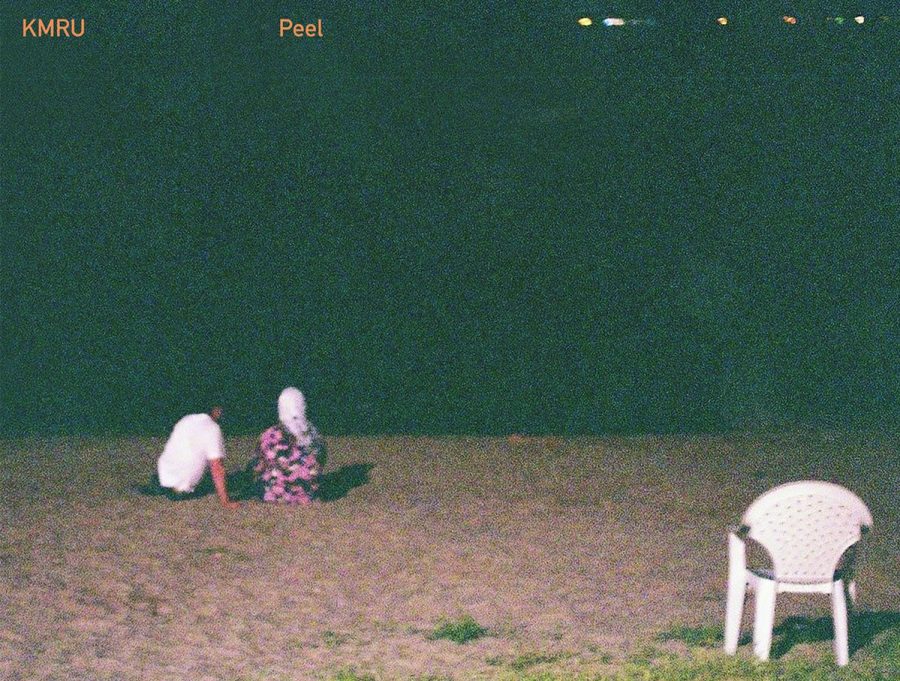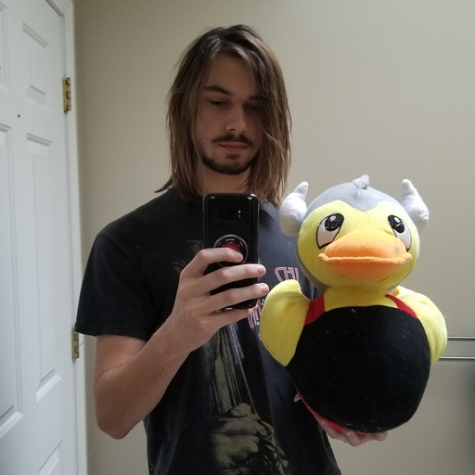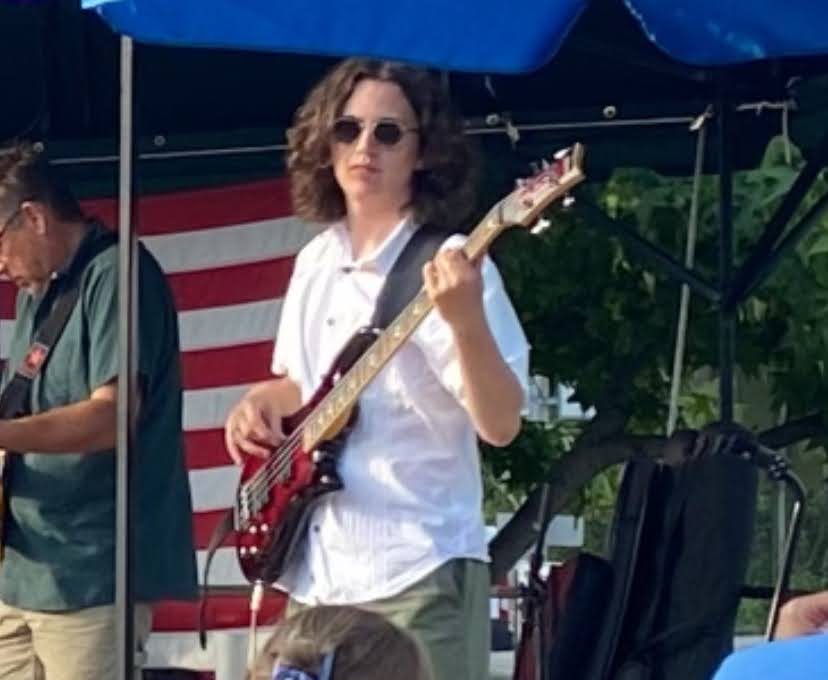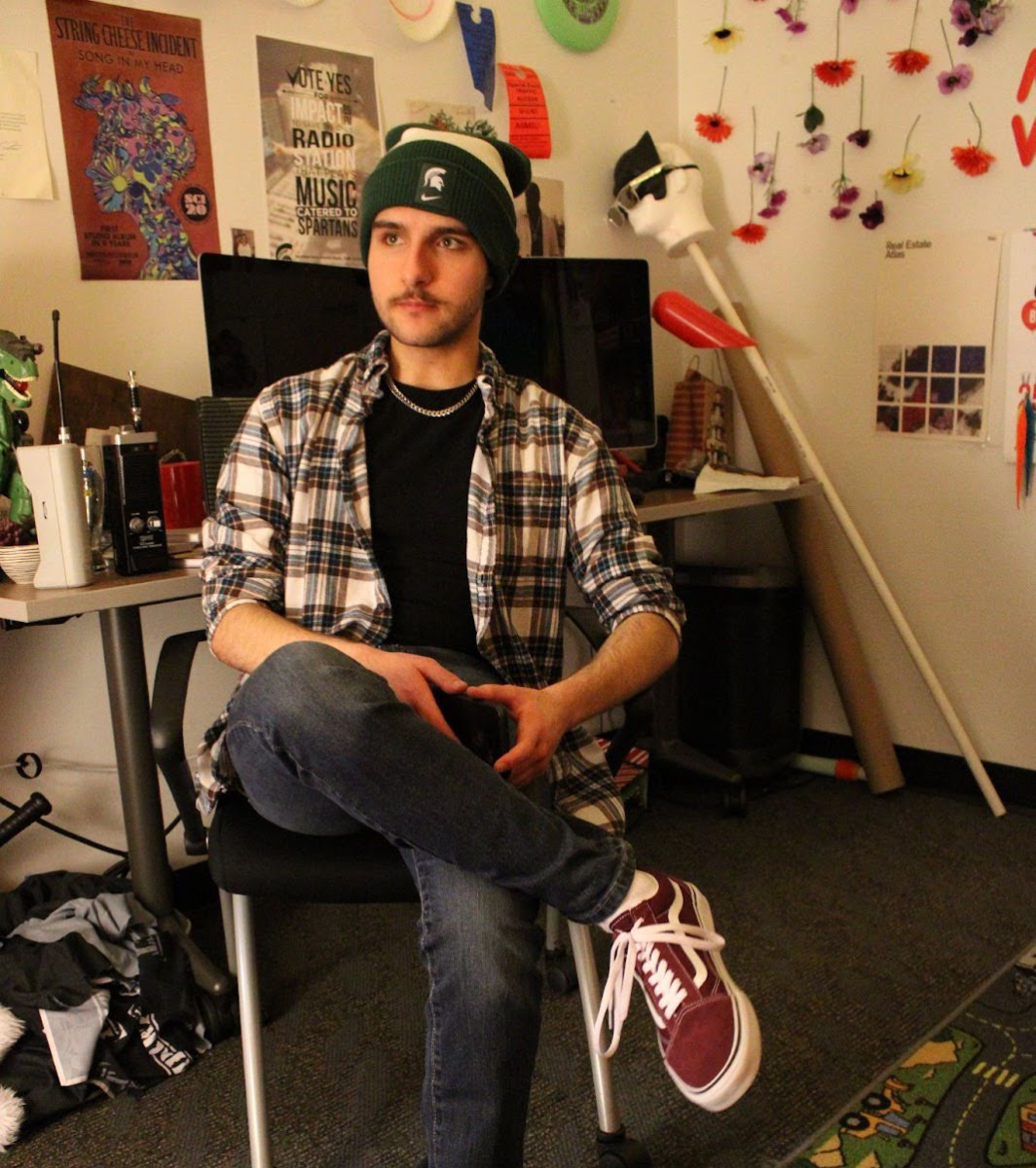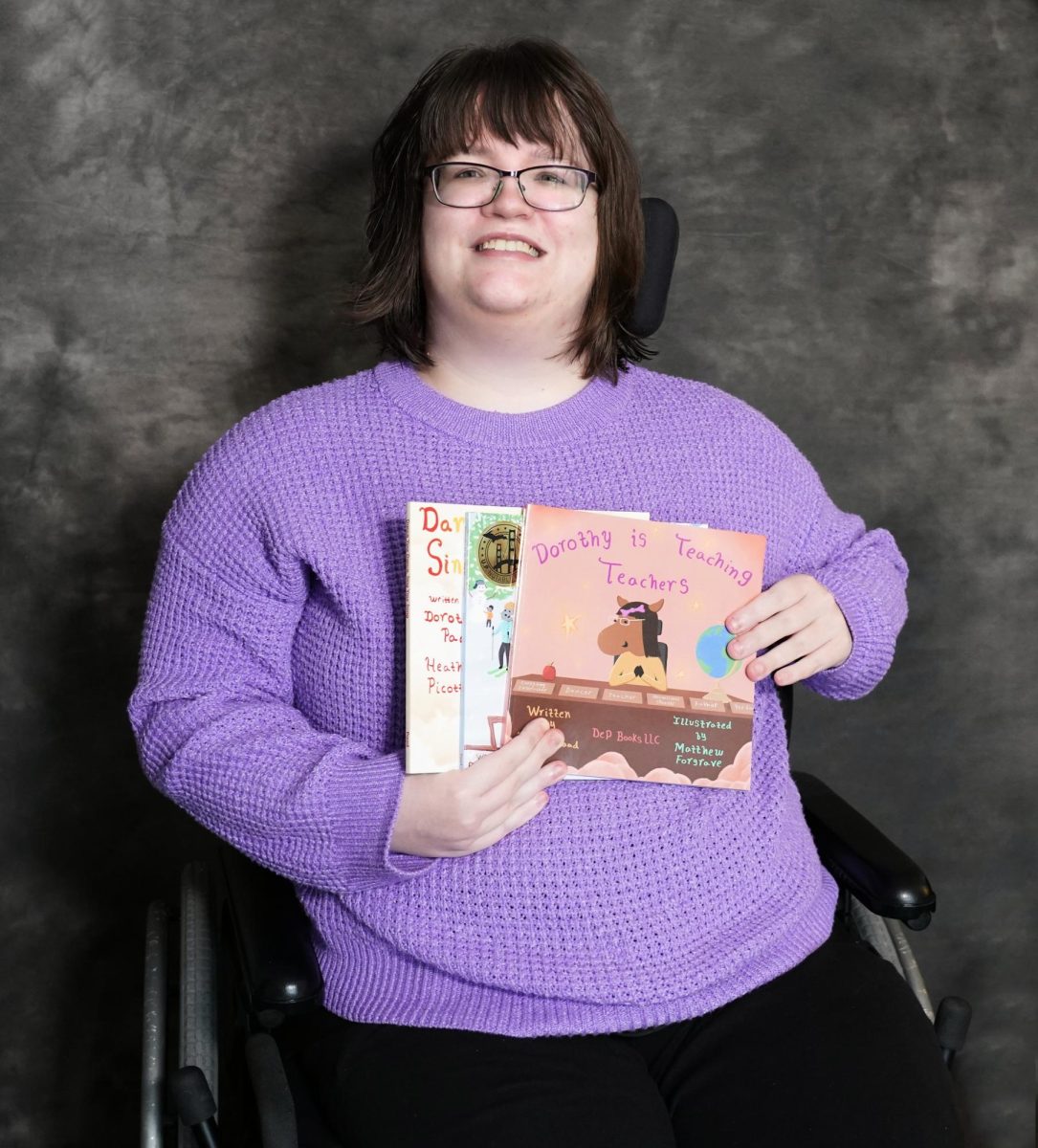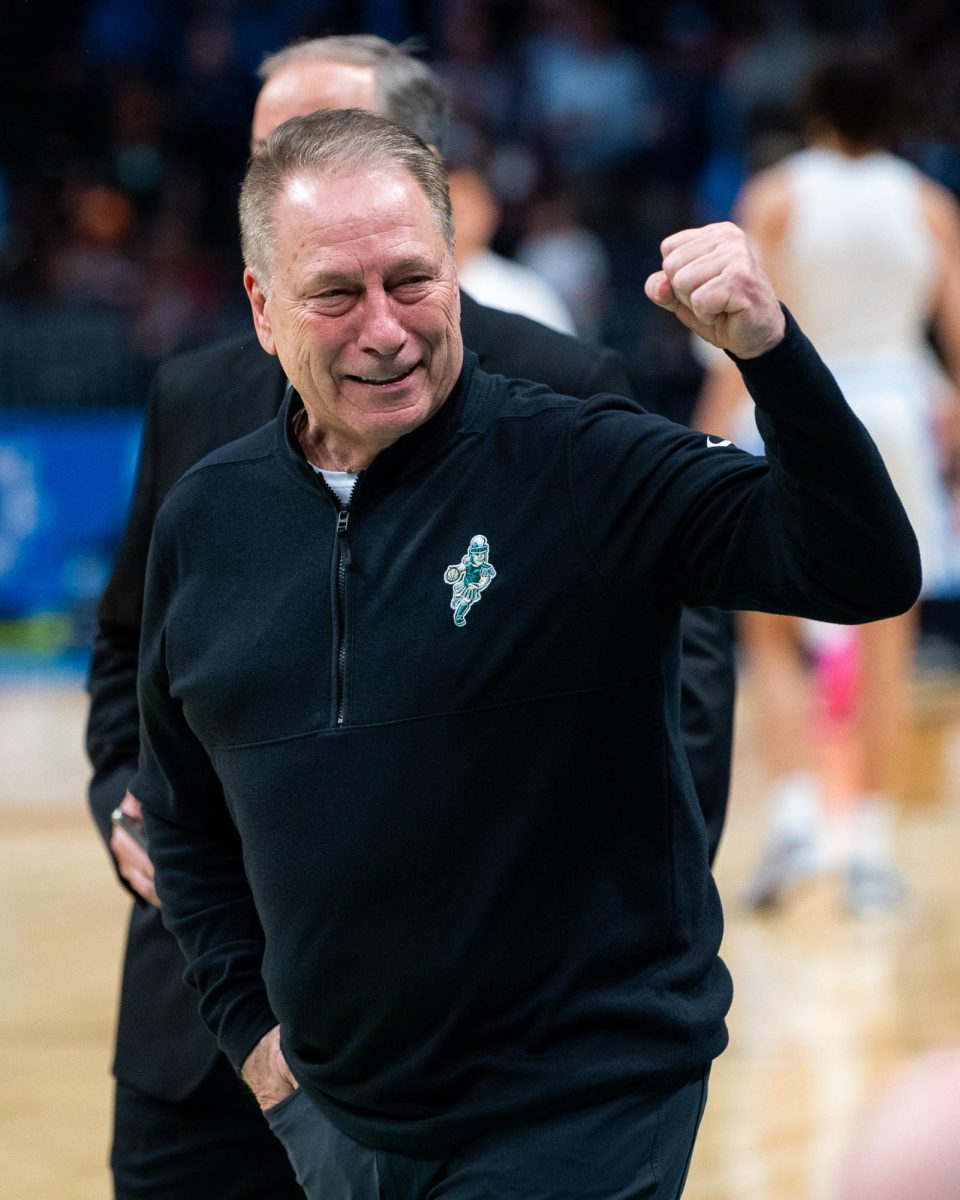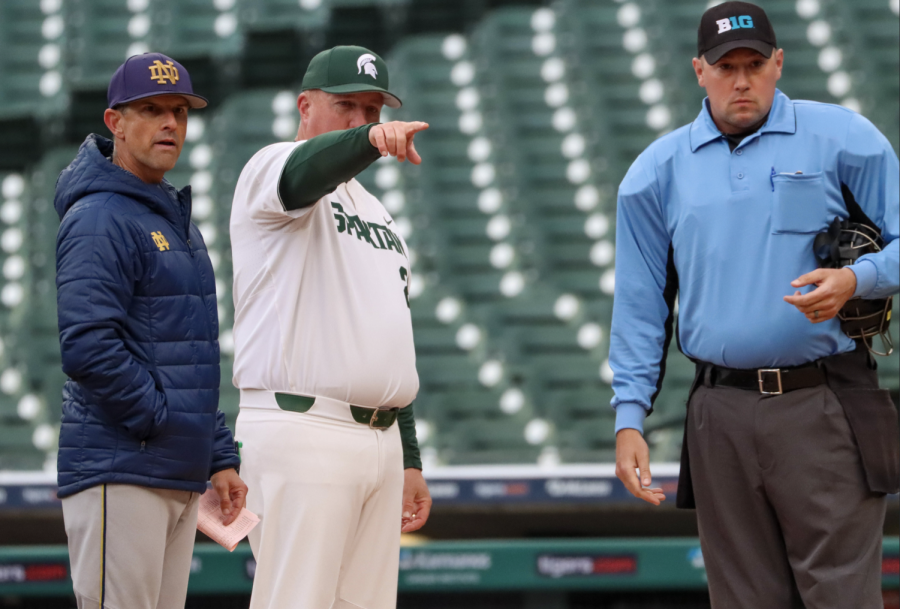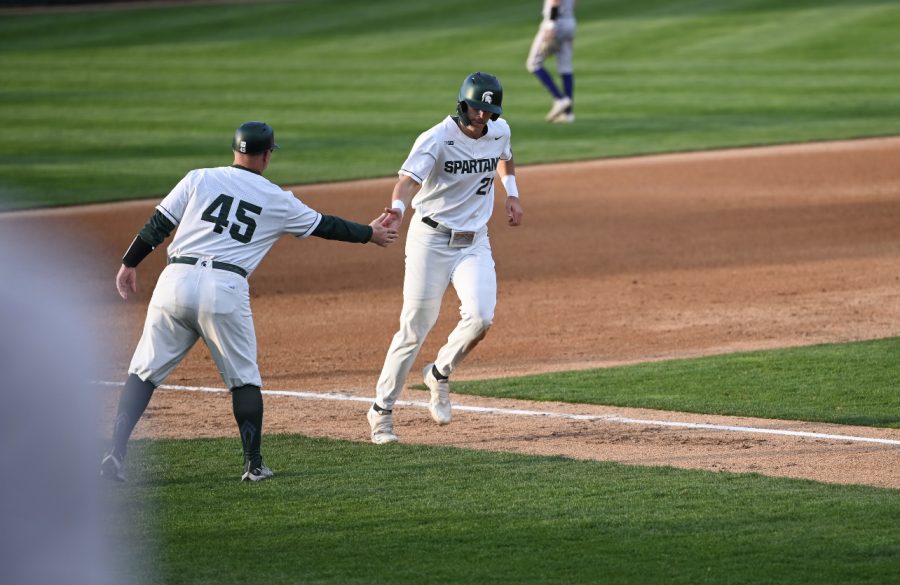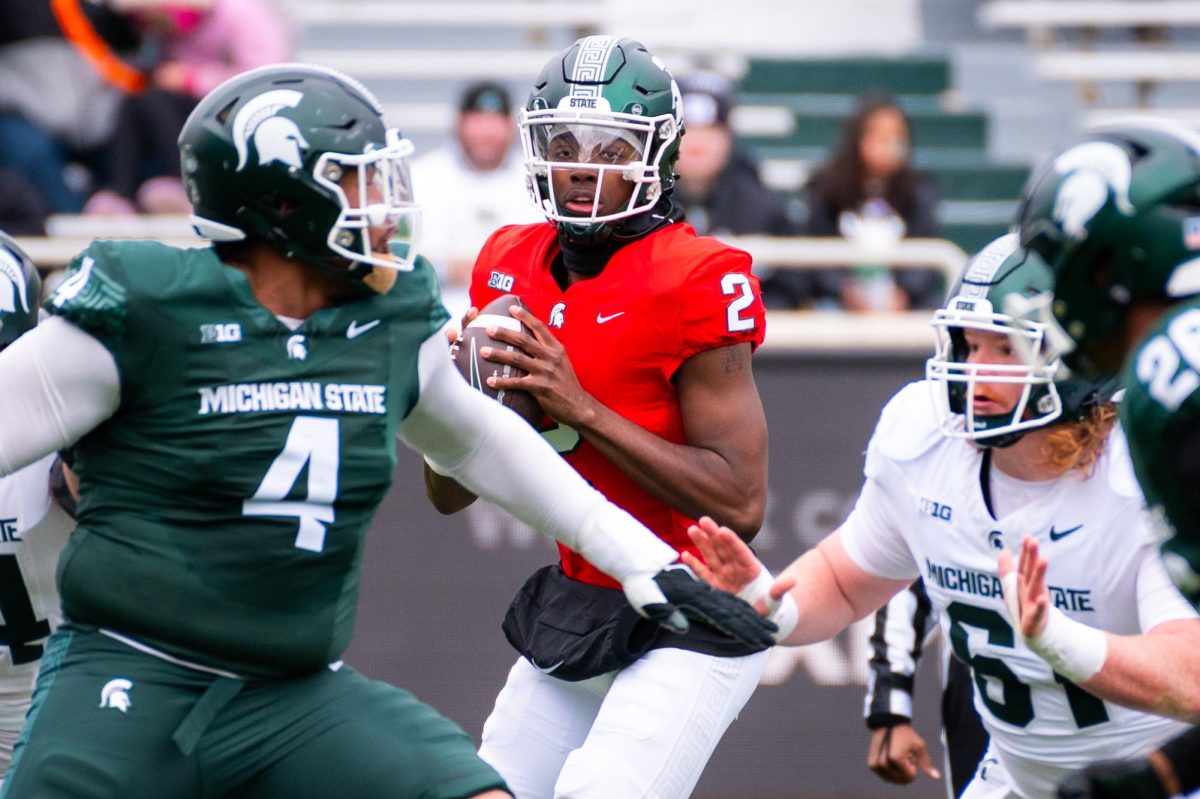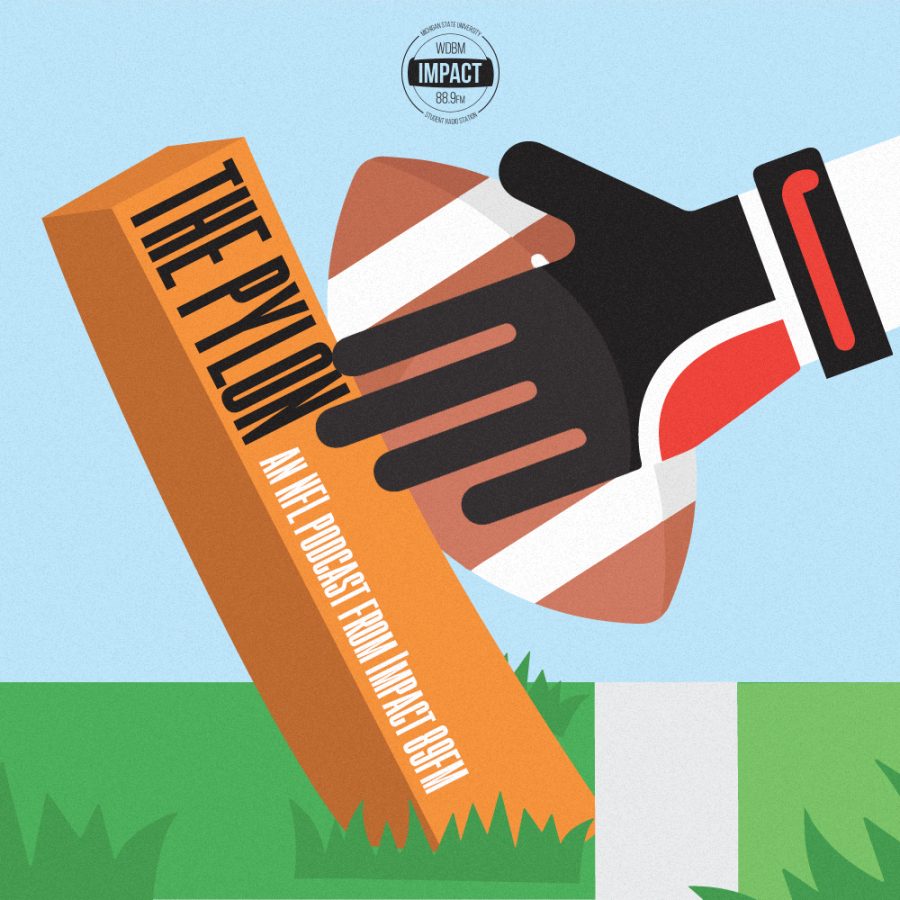The Art of Listening | An Interview With KMRU
December 16, 2022
Nairobi sound artist Joseph Kamaru, also known as KMRU, is one of modern ambient’s most fascinating and trailblazing talents. Currently based in Berlin, he treats the act of listening with a reverence unknowable to many: What has entered his ears from the surrounding world has been translated into a discography hypnotic, dream-like and intriguing to no end. He has experimented heavily with field recordings, synths, machine learning and more to tap into the overflowing wealth of sounds our world has to offer, presenting us with an entirely new world within our own just waiting to be listened to and absorbed. Mike Merucci, editorial assistant and host of The Afterglow at Impact 89FM, was able to sit down with KMRU for a conversation covering his recent albums, his tour with Big Thief, his future endeavors, the art of listening and more.
The following transcript has been edited for clarity purposes.
Mike Merucci: It seems like you’ve been having a really busy year: touring with Big Thief, playing a lot of shows in the UK, two albums releasing. I imagine it’s been equally exciting but also draining.
Joseph Kamaru: Yeah, it’s been quite a busy year. I think it’s the year that I’ve been so grounded in a way, like with everything. Just being able to work and at the same time to have a grounding with the things that I’m doing. It’s been busy, but I appreciate showing up for the music things that I have going on and playing shows and even having time to make music, because I think this is the year that I felt like I didn’t have as much time to create music. But I’ve made so much music already and, yeah, I feel grounded. Even if it seems a bit busy and a lot going on.
Merucci: And you have a lot of schoolwork to do, right? You’re in a master’s program, so how’s that fill into your schedule?
Kamaru: Yeah, that’s also another weight on my back… this summer semester had classes, so I was in and out arriving from the airport to class. And at some point, it was a lot, but it happened when I was touring with Big Thief. So for the whole tour I scheduled all my flights around my classes because I didn’t want to miss so many classes, but I really appreciated having this cool routine. So at some point, I always have to remind myself that I have to also think about school because it’s also a priority for me to finish my Master’s.
Merucci: So with Limen, the first album that you worked on this year — did you mostly work on that last year, or was that partly this year as well? What drew you to that sound? And that collaboration specifically? Because when you look back at your work prior to that, it’s such a big shift, but it’s so interesting.
Kamaru: Aho Ssan — I met him maybe three years ago. And we were exchanging music ideas, thoughts about our processes of creation. And luckily, we ended up being on the same booking agency and also getting commissions together. So we made some music together and we were like, let’s compile some of the music we’ve made and share it because his approach of composition and mine is like two different worlds. But I feel there’s a really strong connection, which was quite seamless… We don’t think so much — it just happens — and an album just came to be. Effortless, in a way. But also, with my move to Berlin, my music became a bit louder or abrasive because it’s a bit silent here and wanting to hear more noise stuff or even performance has really influenced how my music sounds… if it’s not the Limen live sets, but my own performances, there’s a way that playing in different sound systems has affected how I make music in a way, also.
Merucci: And what you said about Berlin being so quiet: I remember I read an interview that you had partaken in where you said that Berlin is really quiet for a city. Do you still seek out field recordings as often in Berlin as you did in Nairobi? Or do you have to shift your musical style in Berlin?
Kamaru: I haven’t been recording as much here as compared to Nairobi because in Nairobi there’s a lot. There’s, like, so much interesting things to record as opposed to here, but I do have recordings from Berlin. I’m still using field recordings in my music as the basis for my work a lot. I became more of a listener here than a recordist, where I was trying to attune myself to this new soundscape. It’s quite silent. And even the fact that when I close my window that I cannot hear anything outside is just bizarre. I’m trying to listen back to the recordings I’ve done from Nairobi or different places a lot. And also going for walks and just listening for what’s new. It feels like I already know the sounds that I’d expect outside, so it’s not as interesting.
Merucci: I will say that the silence of early winter — for me — has been especially jarring. I would go outside and, compared to summer time, summer is much louder. Do you also see a distinction between seasons in terms of sound?
Kamaru: Yeah, that’s true. Because I moved here in November around this time. Yeah. Earlier in November, and it was just deafening, like, quite silent. And in the winter, it gets too quiet. But it’s also nice, sometimes, where it’s super silent. But, sometimes, noise is also good.
Merucci: With your newest release, epoch — since Berlin is so quiet, are your field recordings on that album sourced in Berlin? Or are they from elsewhere?
Kamaru: It has field recordings from Berlin, also old ones from Nairobi. Other recordings from the US, actually, while touring there. Yeah, but very subtle.
Merucci: So, when you’re touring — because it seems like you do a lot of shows in the UK as well, and you went to the US — do you pick up noises frequently from when you’re touring and then you just compile it later and look back?
Kamaru: Not as much, actually, but I try to carry my field recorder. And most times I don’t use it, but sometimes when I’m, like, at the hotel, I’ll just put the microphones outside the window and record a long recording, and mostly just listen back, actually — not use it. Because if I’m playing a show and I have, like, three days in the city or four, that’s when I can do lots of recordings. But I’ve also been carrying a camera, so I also take pictures of places I have been, just to remember.
Merucci: Do you see yourself bridging more into visual art? Like, when you’re taking pictures, do you see yourself doing exhibitions anywhere down the line with photography or anything like that paired with your music?
Kamaru: Yeah… I think I’ve never mentioned before, but I used to have a camera when I was maybe 13 or something and I used to take pictures with a family camera, but I wasn’t interested in, like, images of objects or things. And then that stopped when I lost the camera, but I bought this camera just to sort of document as a way, also — together with sound. But yeah, I take lots of pictures also thinking of artworks, sometimes album artworks because I feel there’s a strong effect or affect with really strong image. And sometimes I’d take a picture and think that maybe I could make a short EP based on this image.
Merucci: In association with images: memory. When you’re making music, do you use your music as a capsule for memories, sometimes? With Limen — to me, that sounds like a prediction of the future. That album, to me, sounds like the end of the world. But then when I listen to something like Jar, that sounds like an album full of memory to me. Or when I listen to Peel — Peel is like a weird bridging between, like, disturbing silence, but also peaceful memory. Do you walk along that line in any way, or no?
Kamaru: I think, with field recordings, the sense of memory [comes] from doing actual field recordings, because I’ve done lots of them. And I stopped, like, documenting or naming them because I want to remember when I listen back to them, and most times when I’m making [music] like Jar, for example, which is heavily with field recordings… I can remember different places or spaces that I was recording or the environment or the people who are around there. But — for example — with Limen, with Aho Ssan: We’ve had ideas where it sounds like it’s the end of the world or it has a visual memory of something, which is depicted maybe after the project is done… I think it just transpires slowly when the music feels this way, but it’s not in the initial conception… Maybe if it’s something specific to a specific place, and I’m only using the recordings of this one place, and then there’s different nuances of this place. And the way the music just feels like there’s an environment around it: like different sounds, memories.
Merucci: Yeah, that makes sense because a lot of people I’ve talked to — when they create — don’t specifically have something in mind at first, and then after you make it, then it’s like, oh, maybe this was subconscious or something. Things always on your mind, somewhere tucked deep.
Kamaru: Yeah.
Merucci: Well, there is one specific track from you that I do want to talk about: “Why Are You Here.” Why did you title it “Why Are You Here?”
Kamaru: It’s, like, this normal day where you open Ableton and jam on something or try a new plug in, and I made the track. And this is the first track that I made for Peel — and I knew this was going to be an album after making this. And it also happened when I had, like, a transition of life… There was COVID — things had stopped, and there’s things happening. I just finished my studies — my undergrad in school — and I stopped teaching. I lost this teaching job that I was teaching production and guitar. And then I was just constantly in my bedroom making music for, like, three months or something. And, yeah, in between [was] this night where I started experimenting with drone, this genre called drone. I just titled the track “Why Are You Here” mostly in a connection to what was happening in my life. And I knew that this was going to be a record from this track.
Merucci: I read that you previously said that [Peel] was the first album that you made where you wanted all the tracks to relate to each other. So when you made “Why Are You Here” you decided everything wants to relate to each other?
Kamaru: Yeah, because — apart from Peel — all the other records are made in different, like, projects, but Peel — It’s like a book, like one long project. And it’s just the one project file, which was interesting to approach making an album this way. And also the fact that I finished it so quickly that I wasn’t sure if it’s finished, or it sounds finished. And constantly going back to it and, yeah, eventually it came out.
Merucci: So, you have not continued that process with your most recent ones, like epoch? How did you make that one in comparison?
Kamaru: I knew I was going for this US tour earlier this year, and I made a promise that when I come back, I’ll buy a synth — I bought a Prophet Rev2 — and I’m gonna make an album just with it. And yeah, that’s what I did. So I came back, had the Prophet, and the whole month was just, like, recording noises and bloops and using the pedals. Because I knew I wouldn’t have more time to make music in one setting, so I made some sketches when I was home, and then Big Thief happened and when I was coming home, I was just working on it.
Merucci: So did Big Thief just reach out to you or your manager one day? Just how’d that happen?
Kamaru: So the drummer, James: He’s the one who wrote to my booking, Carin, and it was a very personal email. It was during COVID that he discovered my music and he sat with the whole band, and listened to maybe my entire discography. And they were like, you want to tour with this guy? And they reached out and it was quite special because I learned so much from them because they’re so human. And just seeing them play and getting to know them very closely. Because my friends were saying bands wouldn’t, like, want to build a relationship with the support act, and I bonded so much with them. And yeah, I just appreciate that I had this experience with the band in the summer for so many shows.
Merucci: In the future are you going to be doing any more supporting acts — do you know as of yet — or are you unsure what the next year holds?
Kamaru: In the future? I’m not sure if I’m gonna do another support act, but maybe, I’m not sure. At the moment, next year, I’ll just be working on a dance piece. Yeah, I can’t say much about it, but that’s the only thing that I have.
Merucci: That sounds exciting. That’s something that you’ve never truly delved into before. Is it new for you, or have you kind of dabbled [in it] in the past but just not fully gone into it?
Kamaru: Just with an individual dancer, because it’s something that I wanted to do — where a dancer, like, reaches out and wants to use my music for their choreography. But me being the one curating and working on the music? I’ve never gotten the chance, and I think this one will be interesting.
Merucci: Awesome. That certainly does seem interesting. So I’m mostly curious: How many more semesters do you think you have in school?
Kamaru: I finish next summer, so I only have maybe one or two. Yeah, two.
Merucci: Do you think you’re going for a PhD as well, or is Master’s where it’s at?
Kamaru: Yeah, I’m doing my Master’s now, so if I do my PhD, maybe it’s going to be something creative and not, like, quite theoretical. But not now: I think I need some break.
Merucci: Theoretically speaking, any ideas for what you would write a doctoral thesis on if you were ever to do that?
Kamaru: I think it’ll have to do something with listening because with my university, my program in sound studies, I realized the discourse is so specific to the Western Eurocentric or occidental ways of thinking. And, yeah, most of all my school projects are just about my history, my growing up, references from home, which sometimes is hard to get, but I try to use sound in a way to provoke this. And if I’m going to do a thesis, it’s going to be something around listening.
Merucci: So, growing up, were you taught a certain way of listening, or did you just observe other people listening around you, or did it just kind of happen where you ended up listening to everything around you in a way that’s just kind of different from anyone else? Or from experiences that you have listening elsewhere?
Kamaru: I think the environment where I grew up also changed how — not how I listened — but how you relate to things around you, with people and even listening, I guess, because I grew up in a really noisy neighborhood — really intense. And I realized when my parents moved to, like, a silent neighborhood… is when I could hear things clearer. More in a technical way, but also understanding how people relate to each other on a social level. And I think this was what interested me when I bought a field recorder: I was just amazed, like, oh, I can listen even more with this device. And trying to connect both the listening, like, the ear, and also relation with spaces, people, and sound, because I realized people don’t think about sound. Like, in Nairobi, I realized people are not thinking about sound a lot just as a sound, not as a musical thing. And yeah, it was quite odd all the time trying to explain what I’m doing. Because I’m just using sound — it’s not music. It’s just field recording and I use it to try and find something that we can learn from listening to, like, this market [for example] and try[ing] and get information just from the sound of it. Like how busy it is, what time it is based on the levels of interaction and stuff like this.
Merucci: I’ll ask you one more question here, also relating to that: Do you have — or, at least, did you used to have — a certain sound that was your favorite sound to record or a favorite genre of sound [to] record? And has that changed over the years as you’ve gotten older and moved from place to place?
Kamaru: I used to — when I had the field recorder in the earlier days — record a lot of nature sounds and things in the house… I was always saying, like, all the things we have around us have a life of their own, sound-wise, and they want to be voiced. At the moment, [I] have three cups on my table and a plate and a pedal and a headphone, and I’d voice them and sound them and make compositions for them. In a way like “This is my piece for the cup. The cup has something to say” and I recorded so much in the house, like doors. Just minute sounds, like Foley things, and then [I’d] collage them and make pieces for, like, my bedroom. Like, my bedroom sounds this way, and I use all the sounds I can get and I can make a composition about this room. And eventually I went to city soundscapes, which was interesting in Nairobi. And just trying to relate different cities, if there’s something I can find. For example, in Berlin and Nairobi I have recorded much, so I always try and see a similarity — if there is. When I travel, I try and record one recording and always listen to something that I can hear back, or that can relate to Nairobi. At the moment, it’s become so focused when I decide to carry a field recorder. And yeah, spaces like buildings where I’d want to stay for long or places where I can go back and listen again and sort of build a connection with a place or a community or a neighborhood. I think where I live in Berlin, I feel so comfortable recording because I’m sure people have seen me walking or they know you can see different people the same. You can see similar people sometimes, because maybe they live here, and I record much around here. Also, in a way, I hear more because I feel like I know how it sounds more.


